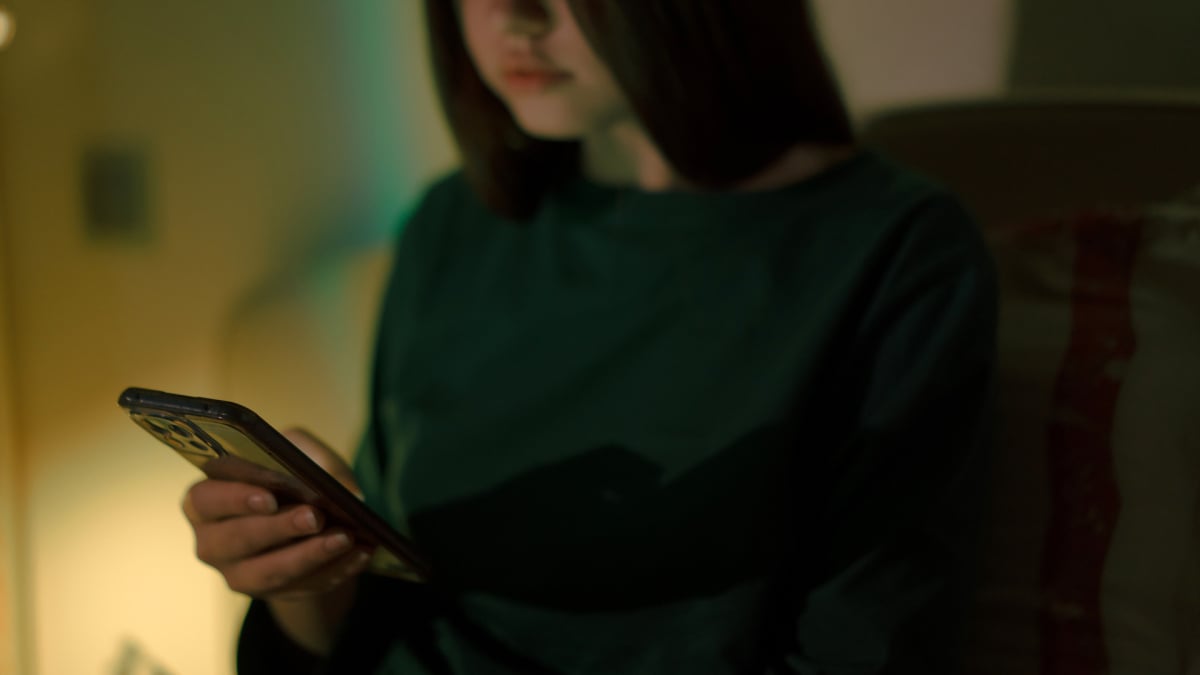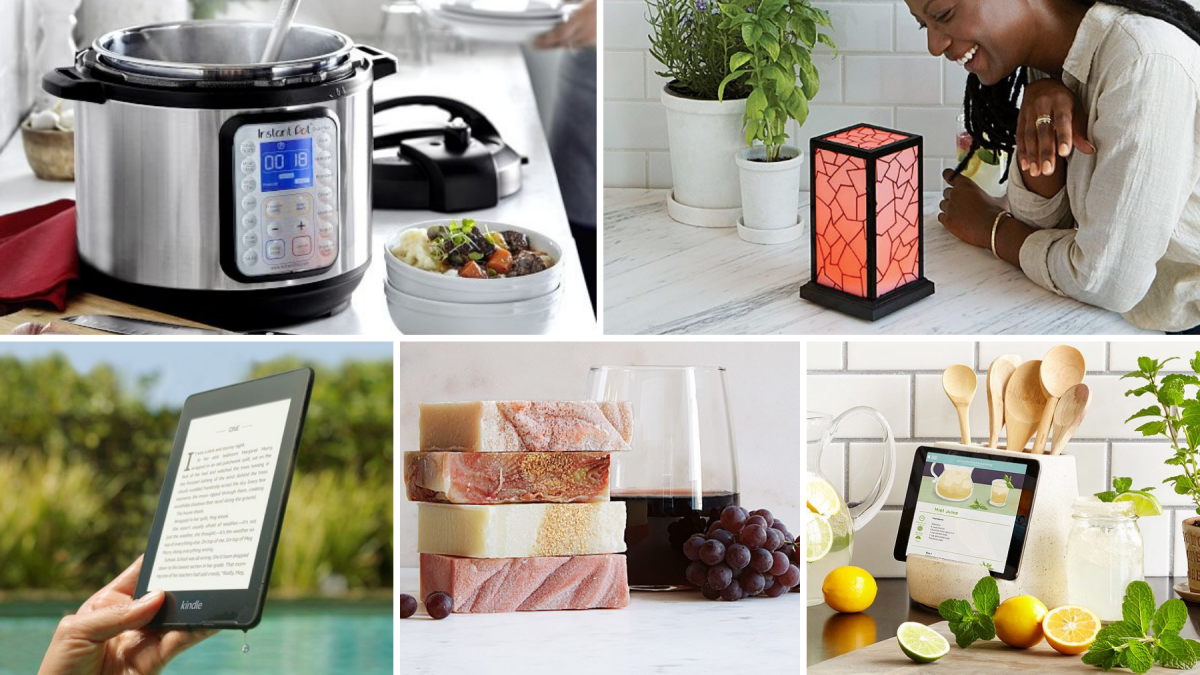Entertainment
How Gen Z uses the internet to self diagnose and get help

Generation Z (born between 1997 and 2012) uses the internet to self-diagnose their own mental health conditions, but not in the ways one might reflexively (or judgmentally) assume.
A new survey and report from the Made of Millions Foundation, a nonprofit mental health advocacy organization, found that only a small fraction of Gen Z youth relies solely on the internet to interpret their symptoms and make their own conclusions about a diagnosis or disorder.
The majority of youth surveyed instead consult online resources, including social media, in conjunction with seeking or receiving mental health care and treatment. The findings counter a prevailing narrative that it’s become trendy, and common, for young people to diagnose themselves with a specific condition without any professional help or support.
In fact, of the 970 people between ages of 13 and 28 surveyed for the Made of Millions report, 431 of them were in some phase of what the researchers described as a mental health “journey.”
Of the subset of nationally representative participants who had a diagnosis, a mere five percent, or 10 people, said they were self-diagnosed and had no plans to follow up with a clinician. Eight percent intended to see a mental health professional after having made a diagnosis for themselves, based on internet research.
But nearly three quarters of respondents who said they had a diagnosis received it either exclusively from a clinician or through a combination of clinical expertise and independent online searching.
Uma Chatterjee, a neuroscientist and mental health advocate who provided expertise for the Made of Millions report, says she supports young people using the internet to explore information about their symptoms and possible diagnoses.
That information can be particularly validating when someone realizes they may have a condition like OCD, which is often misunderstood, Chatterjee says.
It’s so “powerful to show people that something that they never had a word for, or a way to describe, or they just thought was normal, is actually something that is a commonly shared experience, especially when there’s so much shame associated with so many of these symptoms,” she adds.
How to safely explore self-diagnosis
Chatterjee does encourage young people to adopt a few key strategies when attempting to self-diagnose their mental health concerns online.
Once they’ve looked into their symptoms and believe that a specific diagnosis might explain what they’re experiencing, Chatterjee recommends they seek out trusted nonprofit and professional medical organizations that focus on that condition through research, education, or advocacy. From there, they should look for resources related to finding a local mental health professional who can provide expert guidance.
For example, someone who thinks they may have OCD might look to the International OCD Foundation, which maintains a directory of not only therapists and clinics but also support groups and other organizations that specialize in the condition. (Chatterjee is a volunteer advocate for International OCD Foundation.)
Mashable Top Stories
Either way, Chatterjee strongly recommends that someone who’s self-diagnosed via internet information searching follow up with a clinician, including a general physician who can make a referral to a therapist or psychiatrist. If a person’s self-diagnosis is incorrect, it’s highly unlikely that they’ll get the tools they need to recover.
Relying only on social media accounts or influencers, even those who seem qualified, for medical and mental health advice can also be dangerous, Chatterjee says. People may be exposed to misinformation or hear about cures that don’t exist.
The pros and cons of self-diagnosis
Theresa Nguyen, chief research officer of Mental Health America, says that people are typically developing health literacy through online searching related to their mental health. (Nguyen and Mental Health America were not involved in the Made of Millions report.)
That research can include reading about symptoms, spending time in forums dedicated to a certain condition, viewing influencer content on social media, and taking mental health screeners.
Every year, two million people in the U.S. take a Mental Health America screener for mental health conditions including depression, anxiety, and psychosis. Users can print out the results and take them to a physician or therapist for follow-up.
Overall, Nguyen believes that many young people have “enormous capacity” to research mental health online, explore social media, and post their own content, all while making timely decisions about seeking out professional guidance or care.
Still, social media posts with high engagement that treat mental health labels, including textbook diagnoses, with surprising casualness can give the impression that Gen Z is eager to adopt certain conditions as a fad.
Chatterjee says the ease with which Gen Z talks about mental health online can both empower and mislead them, depending on the context and person.
“Just because it’s filling a void, doesn’t mean that it’s actually helping in the long run.”
There are scammers in the mental health and well-being space, for example, who cultivate a following by validating their fans’ experiences and building a well-intentioned community all while selling an unproven treatment or so-called cure.
Chatterjee warns that young people searching for help can fall into these traps, believing they’ve found an explanation for their emotional or psychological suffering, as well as a community to belong to as they navigate it.
“Just because it’s filling a void, doesn’t mean that it’s actually helping in the long run,” Chatterjee says. “Not all content is created equal.”
If someone has found an influencer or community they like in the process of self-diagnosis, Chatterjee recommends remaining critical about how those resources contribute to their recovery.
She also advises people to vet the influencers they follow. That can include checking their academic credentials, whether they’re affiliated with a professional organization like the American Psychological Association, and evaluating with skepticism any claims they make.
Angel, 23, was diagnosed with OCD as a young adult after receiving an incorrect diagnosis as a teenager. After learning they actually had OCD, Angel spent considerable time online researching the condition and looking for community. (Angel requested that their last name not be used to protect their privacy.)
For Angel, who has often felt isolated by their OCD, the research connected them to important resources and supportive peers. But the internet also became risky at times.
They began spending hours on a subreddit about OCD, partly to make themselves feel better about their own recovery journey. Angel decided at that point to delete Reddit from their phone as a way of balancing their desire for information with maintaining positive well-being.
Angel tries to focus their attention on practical information, like insights about OCD flare-ups and techniques for managing symptoms.
“I feel like the internet can be helpful but also not helpful,” Angel says. “It all depends on how you learn to use it. I’ve been making sure to learn to use it properly.”
Entertainment
Best Mothers Day gifts: Show mom some love

Mother figures are the backbone of the world. Yours may be your biological mother, or maybe she’s your mother-in-law, your best friend’s mom, or simply someone whose motherly instinct has helped you through hard times.
Moms teach you the adulting necessities, give advice even if the problem is your fault, and above all, they put up with your shit and (almost) never complain.
The game plan here isn’t just to snag the last bouquet at CVS just so you’re not the kid who forgot Mother’s Day (but definitely also get flowers). And you don’t even need to spend a lot of money. (Peep our list of Mother’s Day gifts that cost less than $50. Want even more cheap gift ideas?
Skip the generic mugs and show your appreciation with a gift picked just for her: Whether it’s something to make a part of her life easier, something she’s mentioned wanting in passing, or simply something to make her feel like a damn queen, you can’t put a price on everything she’s done for you, but heartfelt gifts certainly help.
After all, they say “No matter how hard you try, you always end up like your mother.” But is that even a bad thing?
Entertainment
Ban subscriptions and get Microsoft Office 2024 for life for just £121

TL;DR: Grab Microsoft Office 2024 Home and Business for PC or Mac for just £120.54 through June 1.
You wouldn’t keep paying for Netflix if you could own your favorite shows, right? So why are you still subscribing to Office apps you use every day? Microsoft 365’s price keeps going up, but there’s finally a way to break free — and it’ll cost you way less in the long run.
Microsoft Office 2024 is the answer you’ve been looking for. Instead of monthly payments, simply pay £120.54 once and be set for life (reg. £188.37). It’s that simple. And, yes, this lifetime download works for PC or Mac.
What’s included?
This license comes with:
-
Word
-
Excel
-
PowerPoint
-
Outlook
-
OneNote
The newest version of Microsoft Office is a little different from Microsoft 365. But just because you’re switching to a lifetime license doesn’t mean you’ll miss out on some of the most recent updates. Word and Excel both still have AI integrations for text suggestions and smart data analysis, and PowerPoint still has improved tools for recorded presentations.
Once you’ve redeemed your purchase, you can install your apps on one computer. After that, they’re yours to use however you want. No more subscription fees or sudden price hikes to worry about.
Why rent when you can own?
Mashable Deals
Get a Microsoft Office lifetime license on sale for £120.54 with no coupon needed.
StackSocial prices subject to change.
Entertainment
Wordle today: Answer, hints for May 9, 2025

Oh hey there! If you’re here, it must be time for Wordle. As always, we’re serving up our daily hints and tips to help you figure out today’s answer.
If you just want to be told today’s word, you can jump to the bottom of this article for today’s Wordle solution revealed. But if you’d rather solve it yourself, keep reading for some clues, tips, and strategies to assist you.
Where did Wordle come from?
Originally created by engineer Josh Wardle as a gift for his partner, Wordle rapidly spread to become an international phenomenon, with thousands of people around the globe playing every day. Alternate Wordle versions created by fans also sprang up, including battle royale Squabble, music identification game Heardle, and variations like Dordle and Quordle that make you guess multiple words at once.
Wordle eventually became so popular that it was purchased by the New York Times, and TikTok creators even livestream themselves playing.
What’s the best Wordle starting word?
The best Wordle starting word is the one that speaks to you. But if you prefer to be strategic in your approach, we have a few ideas to help you pick a word that might help you find the solution faster. One tip is to select a word that includes at least two different vowels, plus some common consonants like S, T, R, or N.
What happened to the Wordle archive?
The entire archive of past Wordle puzzles was originally available for anyone to enjoy whenever they felt like it, but it was later taken down, with the website’s creator stating it was done at the request of the New York Times. However, the New York Times then rolled out its own Wordle Archive, available only to NYT Games subscribers.
Is Wordle getting harder?
It might feel like Wordle is getting harder, but it actually isn’t any more difficult than when it first began. You can turn on Wordle‘s Hard Mode if you’re after more of a challenge, though.
Here’s a subtle hint for today’s Wordle answer:
Gibberish.
Mashable Top Stories
Does today’s Wordle answer have a double letter?
There are no recurring letters.
Today’s Wordle is a 5-letter word that starts with…
Today’s Wordle starts with the letter T.
The Wordle answer today is…
Get your last guesses in now, because it’s your final chance to solve today’s Wordle before we reveal the solution.
Drumroll please!
The solution to today’s Wordle is…
TRIPE.
Don’t feel down if you didn’t manage to guess it this time. There will be a new Wordle for you to stretch your brain with tomorrow, and we’ll be back again to guide you with more helpful hints.
Are you also playing NYT Strands? See hints and answers for today’s Strands.
Reporting by Chance Townsend, Caitlin Welsh, Sam Haysom, Amanda Yeo, Shannon Connellan, Cecily Mauran, Mike Pearl, and Adam Rosenberg contributed to this article.
If you’re looking for more puzzles, Mashable’s got games now! Check out our games hub for Mahjong, Sudoku, free crossword, and more.
Not the day you’re after? Here’s the solution to yesterday’s Wordle.







